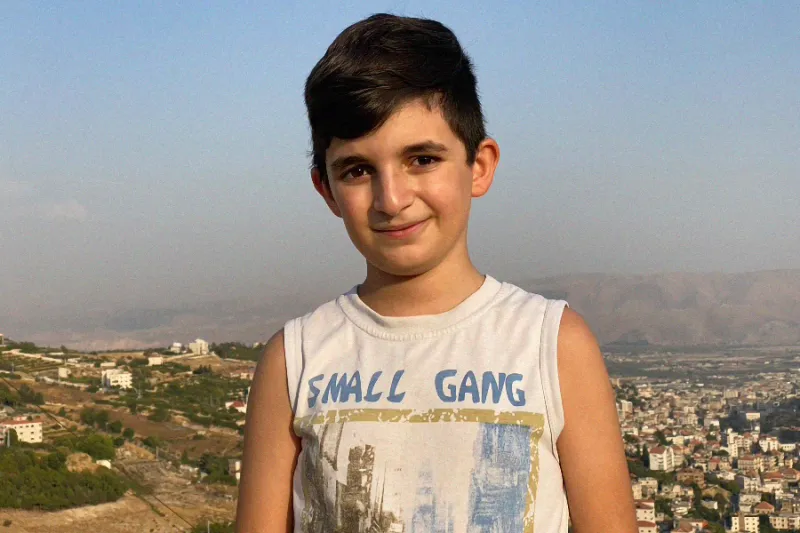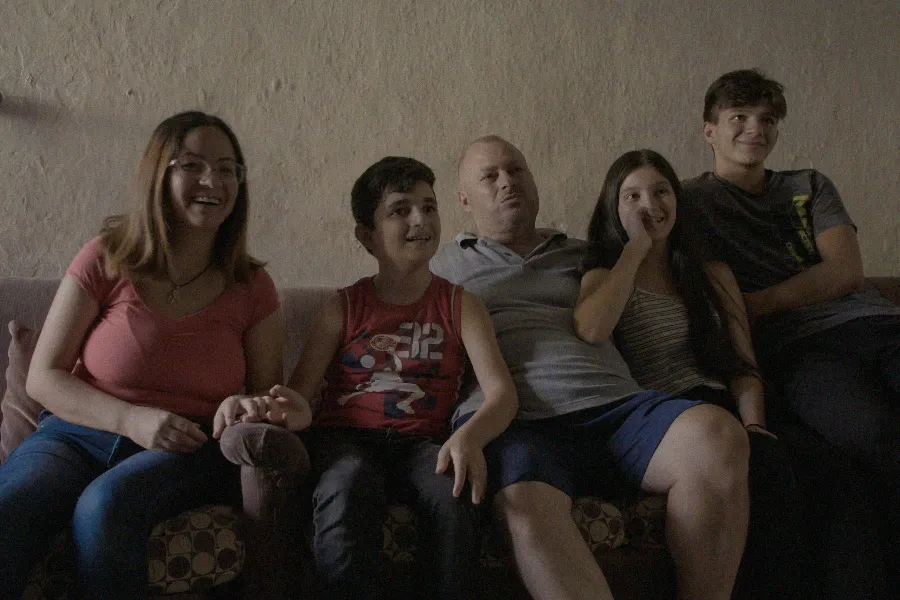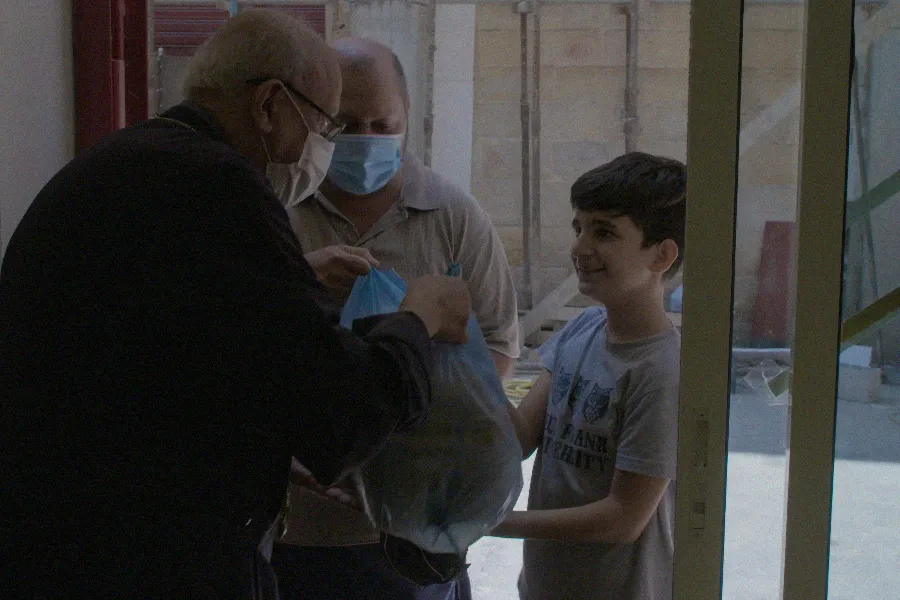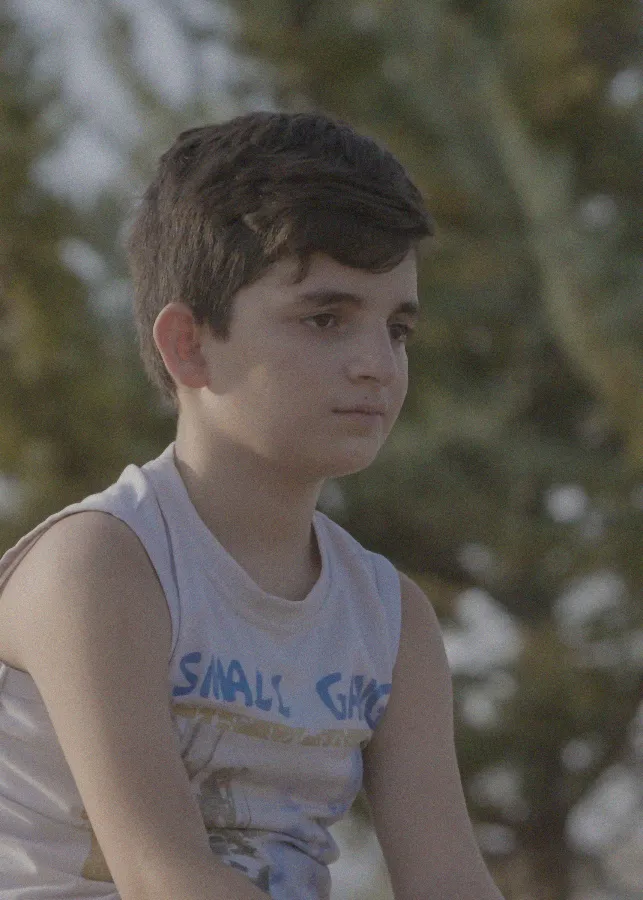
Zahle, Lebanon, Dec 14, 2021 / 13:00 pm (CNA).
As Christmas approaches, Majed knows that he has something important in common with the newborn Jesus.
In an interview with the Catholic charity Aid to the Church in Need (ACN), the 12-year-old Syrian boy living in Lebanon said: “I have become a refugee, just like the Child Jesus, who also had to flee together with his parents.”

Majed and his family are grateful for the help they have received in their new home. But at times the sense of loss can be overwhelming.
“Sometimes my family gets sad and feels nostalgic. And there are also tears when daddy tells us that we once had a beautiful house, light and spacious,” said Majed, whose name means “Noble” or “Glorious” in Arabic.
“The church used to be decorated and welcoming for everyone at Christmas time, but now everything has disappeared.”

Majed was only three years old when his family fled Syria, a country with a population of 17 million bordering Lebanon.
His father, Basman Abboud, told ACN that after the war broke out in 2011, at least 50 people died in six months in his neighborhood.
“We endured it for a year, living in hell — with no work, no electricity, no schools, no food,” he said. “We daily ran the risk of being shot by snipers. The closure of the schools left an entire generation without education.”

Terrorist groups summed up their aim with a slogan: “The Alawites to the grave, the Christians to Beirut.”
The Alawites, or Alawi, are a Shiite Muslim group whose members include Syria’s President Bashar Assad. Beirut is the capital of Lebanon, a country of around seven million people, roughly a third of whom are Christians.
“They attacked us with guns, although we were completely defenseless,” Majed’s father told ACN, a pontifical foundation formed in 1947.

The family reached Zahlé, the main city in Lebanon’s Beqaa Valley, on March 20, 2012. They stayed at first with a relative who had arrived a few months before, with 15 people crammed into the house taking turns to sleep.
Majed’s parents heard that a local Catholic archbishop was offering aid to new arrivals.
“What would have happened to us without this help from the diocese?” his father asked. “We’ve had to cope with so many different problems since we arrived here…”

The family benefited from a food aid program known as the St. John the Merciful Table, which has provided a lifeline for Syrian refugee families and also Lebanese families suffering amid the country’s devastating financial crisis.
The World Bank has described Lebanon’s financial situation as among the “most severe crisis episodes globally since the mid-19th century.” It estimates that the country’s real GDP contracted by more than 20% in 2020, with surging inflation and high unemployment.
“Thanks be to God, without this aid we would not have known what to do, since on top of everything else, owing to the COVID-19 crisis, we had no work for a whole year,” said Majed’s father.
“If the Lebanese themselves don’t have any work and face a very difficult situation, then what can be said about us? We are refugees in Lebanon. Without the help of the diocese, including the medical care, since the Tel Chiha Hospital, which is run by the diocese as well, also helped us with surgery for my wife.”
In recognition of the great need in Lebanon and Syria, ACN announced in November that it is donating $5.6 million to help Christian communities in the neighboring countries.
Majed’s family have been able to move into a two-room house, but life remains a daily struggle.
“The Lord is present, and we trust in his presence,” said Basman Abboud. “We are still all alive, and we are grateful to all those who have been so good to us and we pray that God may reward them, because we can never repay them for what they are doing for us. But God sees and knows everything they are doing for us.”
As for Majed, he is counting down the days to Dec. 25.
“My desire for Christmas is that people may think of families like mine and help refugees to have hope in a better future,” he said. “Happy Christmas everyone!”
If you value the news and views Catholic World Report provides, please consider donating to support our efforts. Your contribution will help us continue to make CWR available to all readers worldwide for free, without a subscription. Thank you for your generosity!
Click here for more information on donating to CWR. Click here to sign up for our newsletter.




Leave a Reply